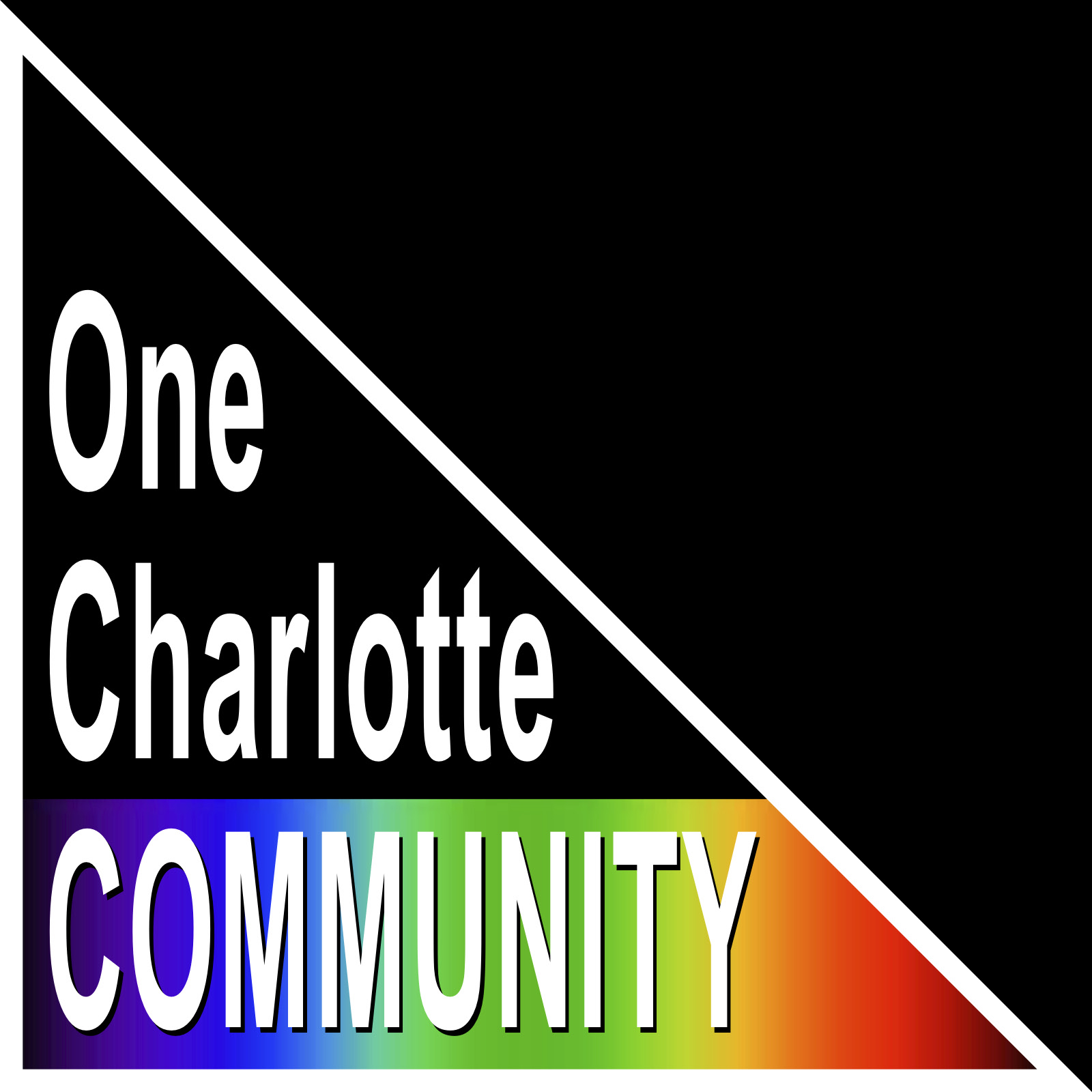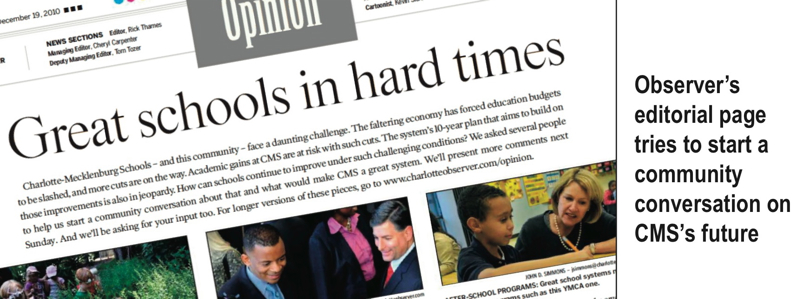
Dec. 20, 2010
Sunday’s Observer editorial page began a two-week focus on citizen comments on “what would make CMS a great system.” Comments are below.
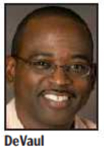
Mike DeVaul
Senior Vice President, organizational advancement, YMCA of Greater Charlotte
“If it takes a village to raise a child, then why does it not take a community to educate one? In my view, a great public school system focuses on its core services and engages community partners to ensure that all students have goals beyond high school graduation. I believe that Success in school, work and life for any individual depends on a “network” of support (school, parents, mentors, extracurricular and enrichment opportunities) that nurtures his or her their potential.
“First, we need shared accountability for learning. At the Y, we are determined to make the best use of a child’s out-of-school time with activities that develop character and social skills, provide academic support through tutoring and connect students to positive role models. By opening the doors of communication between schools, businesses and organizations like ours, we could all have a better understanding of each child’s specific needs and challenges and would be better equipped to work with parents and teachers to have greater impact on academic performance.
“Second, I believe that greater emphasis on kindergarten readiness and post-graduation vocational study could significantly increase our kids’ success rate. Could public and private business work together to re-invent the education system to one that started in pre-kindergarten and supported kids through age 20?
“We also need to nurture strong parental support. Not by judging their abilities or intentions but by providing true supportive help. We have adults in our community who have felt disenfranchised by a public school system since their youth. Lacking the chance to connect to their own education as children, they have greater difficulty connecting now. The school system needs more volunteers to help foster and strengthen good parental navigation skills. Most of our challenge lies in some parental inability to understand the system. Instituting a parent mentoring program in our community could utilize parents with good navigation skills to help their neighbors make better decisions for their children. We stand ready to assist.
“Lastly, as part of a cause-driven nonprofit that believes structured, enrichment activities truly help children learn, grow and thrive, I believe that every child should have access to out-of-school programs such as swimming, creative arts, dance, team sports, after-school programs and camp. Again, through collaboration with schools, businesses and organizations like the Y, and with the support of citizens who give their volunteer time and resources, we can provide year-round and lifelong structure and support that every child needs to succeed.
“The YMCA has been working in concert with our National Office for several months re-engineering our programs the better support educational outcomes. We stand ready to be an even stronger ally with our schools and others. We are better together, it takes a community to educate a child!”
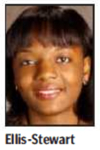
Ericka Ellis-Stewart
Parent, civic activist
“A great public school system is one that is focused with laser-like precision on the business of educating children. It is a system where in which our community can rest assured that all children will have the opportunity to live up to their potential regardless of their geography, race, or socio-economic status. Simply put, each student has the opportunity to interact with and learn from a highly qualified teacher every day.
“A great public school system is one that is ripe with options that allow students to flourish academically, socially, and emotionally. It provides a plethora of opportunities for traditional and specialized learning that are geared towards challenging young minds to become critical thinkers and the leaders of tomorrow. Its daily goal is to change the life of a child for the better at every intersection.
“A great public school system creates a culture and environment of dedication and passion for teaching. The evidence of Learning is palpable in every corner of the schoolhouse. Teachers make learning come alive inside of the classroom. Principals are inspirational leaders and change agents. Parents are involved and highly visible. Educators are leaders in innovation who are valued and compensated for the contributions they make. Teachers no longer have to beg for reams of paper and hand sanitizer, or teach all day without a planning period.
“In a great public school system, all schools throughout the district produce academically successful and globally competitive students who are prepared to enter college or the workforce upon graduation. Every school becomes a place where teachers want to teach and students learn. With the effective use of technology, learning is made applicable and relevant to real-world issues. Throughout the district, there is a strategic focus on recruiting, developing, and retaining dynamic and skilled educators. Each classroom has a qualified, and capable , and experienced teacher.
“In a great public school system, each child has a strong foundation in reading, writing, mathematics, and science. All students are bi-lingual; fluent in English and at least one foreign language before entering high school. Music, arts education, and physical activity are no longer spare parts, but key components of the school day. The educating of our children becomes about more than teaching to the test. It becomes focused on a child’s growth, learning and development. School calendars are no longer tied to our agrarian roots and limited to only 180 days. School days are extended to provide children with more instructional time, if necessary. Achievement gaps become non-existent, and graduation rates soar, and no child is left behind.
“In a great public school system, as a community, we commit our resources equitably and efficiently to ensure that all children become well educated, productive citizens. We are no longer satisfied with mediocrity or status quo. We demand continuous improvement and expect nothing less than overwhelming excellence. We must put children first and set aside our political and philosophical differences to become “the village” that it takes to educate every child in our community.”

Amy Farrell
Executive Director, Kids Voting Mecklenburg
“Imagine we are in the year 2020. Over the past decade, Charlotte-Mecklenburg Schools has become widely regarded – in our community, state and nation – as a truly great school system. Charlotte residents are proud of CMS. Parents are moving to Mecklenburg County to enroll their students in CMS. What made CMS great? How did we get here?
“In 2010, CMS faced significant challenges due to the economy, public perception and other factors. Teachers: unhappy. Students: discouraged. Parents: uninvolved. Politics: ugly. Between 2011 and where we are today, in 2020, that changed. What made the difference? Getting the students involved in determining the success, and future, of their schools and community. The steps were simple, and transformational:
“Civic learning was restored as an essential CMS priority. Instead of focusing only on math, reading and science with just a touch of civics, government and history in 10th and 11th grades, students were given dedicated time, resources and learning opportunities to begin the civic learning process in kindergarten and continue it through graduation. We understood that just as we must learn to read, write, add and subtract, we must learn how our governments and communities work, the roles of leaders and citizens, and the impacts of policies and decisions. That knowledge built interest, commitment and trust.
“Ownership of CMS and its future was shared with all students. Smart people recognized that all students have the po tential to be leaders, and gave them good opportunities to develop and practice their skills at school and in the community. It was clear that students cared and wanted to make a difference. They helped to evaluate teachers and give them thoughtful suggestions. They met with school and city leaders to make decisions and share ideas and solutions. They watched out for and encouraged one another, making sure that the class that entered 9th grade was the same class that graduated four years later.
“Students were given a permanent seat at the table. Having teens, even as unelected advisors, sitting alongside elected officials on dais during school board, county commission and City Council meetings kept the focus on students and the future. It gave young subject experts a chance to weigh in on the decisions affecting them. It significantly increased the quality and tenor of the political dialogue, which became civil and productive.
“So what happened in 2011 that kicked off this change? As a community, we struggled with scarce resources and difficult decisions. Then, it dawned on us. We had the resource the entire time: our students.”
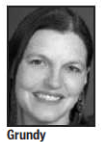
Pamela Grundy
President, Shamrock Gardens PTA
“Marker-wielding kindergartners cover the Shamrock Gardens Elementary stage, intently coloring a set of circus posters. They work in clusters, some kneeling, some sprawled flat on their stomachs, chattering happily as they fill the space between the lines with bright and varied hues. Their faces vary too, ranging from palest white to deepest brown.
“Below the stage, parents and teachers sit amid the remains of a spaghetti dinner, going over learning games that families can play at home. They talk as well, exchanging smiles and stories.
“Our families have come to Shamrock Gardens by many different paths. Some of us have lived in Charlotte all our lives; others have traveled farther – from Minnesota, California and New York, from Africa and Mexico and Vietnam.
We also come from different neighborhoods – from the working-class enclaves of Plaza-Shamrock and the Park Apartments, as well as from the tonier settings of Plaza-Midwood and Country Club Heights.
“But our children are all learning together. And by working to support them, we are creating a new community at the intersection of our differences.
“In my ideal school system, events like our kindergarten dinner would take place all across the county, at a far grander scale than we have been able to accomplish at our small school.
“Rather than narrowing our educational focus to endless iterations of standardized test scores, our community would take a broader look at children’s lives, helping turn schools into anchors and meeting points for the neighborhoods and families that they serve.
“Public policy and individual choice would also work toward creating school communities that pull our children out of the isolation of race and especially of class, broadening every child’s experience and providing opportunities for the highest levels of excellence at every school.
“We hear a lot these days about great teachers and involved parents. But if children are to reach their full potential, they need strong communities as well to challenge and support them.
“These goals involve plenty of obstacles: cultural and language differences; the harried lives so many of us lead, no matter what our income; housing patterns that frequently divide those with means from those without. They would require all of us to put more of ourselves into our public schools, from struggling single parents to corporate executives.
“But they would also help us make our schools into the best kind of public institution, one that strengthens not only individuals, but also communities and a nation. There is a difference between a goal that seems for the moment out of reach, and one not worth pursuing. Piece by piece, we have been building this kind of community at Shamrock Gardens. Staff and parents at many other schools are pursuing similar ends. None of us is there yet. But many are further down that road than we were some years ago.
“Faced with great challenges, communities and nations can divide or unite. In these hard times, we need to follow the Shamrock kindergartners’ lead, and grow together.”

Lucille Howard
Civic activist and former CMS parent
“CMS Superintendent Peter Gorman recently told the board of education that school course offerings are largely determined by size, student interest and staff certification. But the board still voted to create several kindergarten through eighth grade schools and one sixth through 12th grade school.
“All are destined to have limited course offerings simply because there will be fewer students at each class level. Fewer students at each class level almost certainly equate to diluted and, therefore, fewer requests for languages, higher math, advanced placement and other electives that are standard in the large middle and senior high schools.
“Seven grades in a school with 1,000 seats (an average of 143 students per grade level), which has been approved for Cochrane Middle School, guarantees almost nothing for the students beyond grade level math, language arts, history, etc. Will any Advanced Placement courses be on the schedule for Devonshire Elementary and Hickory Grove Elementary students assigned to Cochrane? It’s already been presumed that students will be transported to Garinger High for any sports, band and extracurricular activities.
“A long-standing CMS goal to have equity in access to comparable educational opportunities no longer exists for students assigned to these K-8 and 6-12 schools. CMS appears to have evolved into three systems: one of low-poverty, high-achieving schools; one of magnets serving students with transportation and good “luck”; and one of high-poverty schools in low and middle income communities teaching only the “basics.”
“Is institutionalized, unequal public education by Zip code now acceptable? If this is so, must families who have the means leave these schools and communities in order to get an equal education for their students? Is this healthy? Is it moral? Is it legal?”
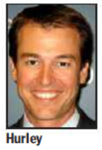
Tim Hurley
Head of Teach for America in Charlotte
“Consider this: In one elementary school, more than 90 percent of the students are proficient in both reading and math. Three miles away, in a different elementary school, only 30 percent of the students are proficient in reading and less than half are proficient in math.
“If you’re wondering where this is happening, you don’t need to look too far. Both of these schools are here in Charlotte.
“The unfortunate reality in our city today is that where a child lives is born determines the quality of his or her education – children growing up in low-income communities are not given the opportunities they deserve to succeed. Solving the problem of educational inequity may seem daunting, but we know it’s possible.
“Working in our city for the last two and a half years as the executive director of Teach For America’s Charlotte region, I have seen many teachers – some of them Teach For America teachers, others not – lead their students in low-income communities to academic success. These classrooms, where students are held to high expectations and fully invested in their education, demonstrate that economically disadvantaged students can succeed on an absolute scale.
“Having witnessed these teachers put their kids on a different trajectory, both in school and in life, I have come to believe that having more highly effective people throughout Charlotte-Mecklenburg Schools – teaching in our classrooms, leading our schools, and making decisions within the district – is a critical part of closing the achievement gap.
“To do this, Charlotte-Mecklenburg Schools, like any high-performing company or organization, must go out and find talent. If we want the best to work in our school system, we must be aggressive in recruiting them here. Then, we must develop them to be leaders and work hard to retain them. If we do this successfully, I think Charlotte can become a harbor of educational talent.
“This school year, there are 230 Teach For America teachers – recruited from many of our nation’s top schools and selected for their records of achievement and leadership – working in Charlotte-Mecklenburg Schools. One of my top priorities is to ensure that these teachers lead their students to achieve at the highest levels, not only for their students’ sake but also because if they have a successful experience teaching in Charlotte, they are likely to stay and continue to work to expand educational opportunities for kids here. Today, there are nearly 200 Teach For America alumni living in Charlotte and 70 percent of them are working in education.
“In our city today, our students are doing their part – showing up to school ready to learn. Unfortunately, we, as a community, are not doing our part – providing all students with an excellent education. With a continued focus on recruiting talent – along with strong district leadership, support from businesses, and public will – we can ensure that every school, in every neighborhood, holds up its end of the bargain.”
Steve Johnston
Member of the nonprofit Swann Fellowship education advocacy group
“The CMS we all deserve would make every school a place where every local elected official, every top CMS administrator and every business executive would be delighted to have their child or grandchild enroll tomorrow morning.
“The CMS we all deserve would have twice the economic resources that it has today, because the adults of this community would have ended the centuries-old North Carolina legacy of vastly underfunding public education.
“The CMS we all deserve would not teach to the test but test after teaching.
“The CMS we all deserve would focus its energy on the child at the back of the room, the child at the front of the room, and every child in between. Personal education plans would not be an ignored legal mandate but a fundamental teaching tool for preparing every single child for what parent and child decide is appropriate for that child – whether college, trade school, work or military service.
“The CMS we all deserve would have nurses in every school treating illness first, knowing that every child must be healthy to learn.
“The CMS we all deserve would honor students as the first and best teachers of other students, whether their siblings or their struggling peers. And until the day that all children enter school equally prepared, it would ensure that every school contained the range of preparation found in the county’s population, so that all classes would contain students ready to teach. And of course if that’s the case, there will be inspired adult teachers delighted to be in every classroom in the system, bonus or no bonus.
“The CMS we all deserve would sacrifice its own convenience and once again hold board meetings in school cafeterias for the convenience of the people it serves. It would prevent the Jim Crowism in neighborhoods from poisoning school assignments. It would make every school a magnet school – one chosen by a parent as the best place for her child. And by capturing parent involvement that way, it will have made every school as strong as CMS magnet schools have traditionally been.
“The CMS we all deserve could be so easily made out of the CMS we have. Let’s get about the task.”
